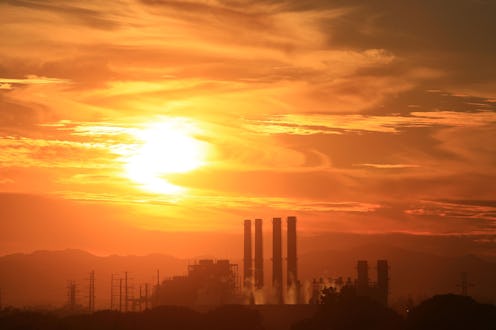News
"Global Warming" vs. "Climate Change"
A new survey has found that Americans care more about "global warming" than "climate change." Conducted with a pool of 1,657 respondents over a two-week stretch late in 2013, the results were straightforward, and strongly suggestive. People were 13 percent more likely to identify "global warming" as a problem than they were "climate change," a wide discrepancy seemingly linked to the different thoughts, feelings or images that the former phrase evokes.
It's not as if the terms are interchangeable, though, though they're sometimes used that way. There's a reasonable case for preferring the phrase "climate change," which is why some scientists do — emphasizing a changing climate, rather than a warming planet, expresses more fully the experience of humans living through it. The sum impact of rising global temperatures isn't just everything feeling hot all the time. Tumultuous storm seasons, hurricanes, and so on are functions of the warming globe, as well. But for the purposes of politics — and with American public opinion so polarized on this issue, politics matter a lot — "global warming" is the clear winner.
As it turns out, the increased urgency people feel at the words "global warming" was identified twelve years ago by star GOP consultant Frank Luntz. Back in 2002, steaming toward the Bush administration's first midterm election season, Luntz advised Republicans to avoid saying "global warming" because of its worrying connotations, urging them to use "climate change" instead. Tragically, he also handed them the very strategy of denialism which, over ten years on, has left more Americans doubting its existence than ever before. In a 2002 memo, Luntz wrote:
The scientific debate is closing [against us] but not yet closed. There is still a window of opportunity to challenge the science. Voters believe that there is no consensus about global warming within the scientific community. Should the public come to believe that the scientific issues are settled, their views about global warming will change accordingly. Therefore, you need to continue to make the lack of scientific certainty a primary issue in the debate.
That this distinction makes such a pronounced difference in peoples' mindsets isn't a surprise, based on similar findings in other areas of messaging and spin — the Republican branding of the Affordable Care Act as Obamacare being a prime example. Polling has found that Americans are much dimmer on health care reform when it's got the President's name slapped on it, compared to when it's called by its proper, official name.
Much as the Obama administration has invoked "climate change" — to their detriment — they even made the same kind of mistake on health care reform in 2012, trying to embrace the unpopular Obamacare name during the general elections.
Whether this news on climate messaging will break through to the Democratic Party will be interesting, and important. It may already be impossible to halt the rising tides, after all, but it's never worth throwing in the towel. If Americans feel a little more of that fighting spirit against "global warming" than they do "climate change," why not accommodate?
